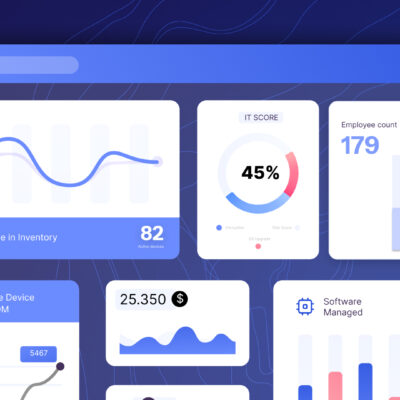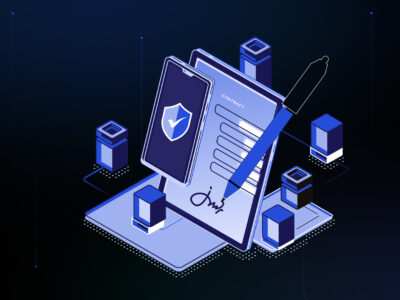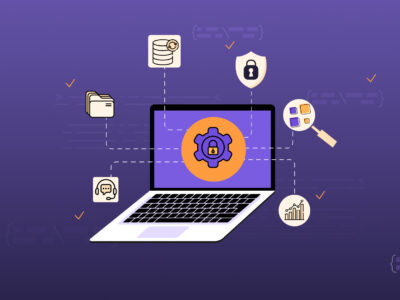The Importance of IT Compliance
Organizations are said to comply with IT security laws and standards when they can prove that their cybersecurity infrastructure complies with certain laws and standards within their nation. A company may face legal ramifications as a result of cybercrimes and human mistakes if private information is taken or compromised. When security issues arise, businesses are also vulnerable to downtime, which can halt production and have an impact on productivity.
Compliance with IT security regulations attempts to secure customer data while assisting businesses in avoiding fines and penalties. This is typically accomplished by developing systems that safeguard client data privacy and prevent expensive data breaches. Organizations can safeguard their company’s reputation and improve company culture by adhering to the relevant security requirements.
What is IT Security Compliance Anyway?

As more businesses rely on technology, they are more vulnerable to cybercrimes like malware, phishing scams, ransomware assaults, email fraud, and website spoofing. It’s crucial to comply with all IT security compliance requirements and procedures due to the significant number of security threats that businesses confront regularly.
Due diligence is a business need for IT compliance to safeguard digital assets and uphold consumer trust. One reason why businesses must comply with privacy rules is to avoid costly fines while operating in a nation with stringent security regulations or in a highly regulated industry like finance or healthcare. Compliance prioritizes both technical and commercial requirements, just as much as conventional security protocols that have to be followed.
Why the Need for IT Compliance?

To safeguard an organization, preserve efficiency, avoid penalties, and guard against surprises that interrupt business operations, every digitally-driven enterprise must remain ahead of compliance. Most firms place a high focus on safeguarding sensitive client information.
Every time a company decides to acquire sensitive data, such as a customer’s social security number or credit card number, they are taking responsibility for how this information is handled. Businesses must take the required security measures to safeguard sensitive customer data and prevent internal and external IT risks.
Elite IT specialists on the ZenAdmin team can assist you in evaluating, deploying, and managing your whole IT infrastructure, ensuring that it is completely safe from any cyberattack or digital dangers, and in compliance with IT regulations. Feeling like your business could use a little extra security? Here’s why IT compliance is a big must for almost any business:
1. Builds a Sense of Trust in Your Company and Industry
Customers who use a product or service want to feel secure handing over their personal or financial information to a company. Following IT security guidelines help a company maintain a positive reputation in its sector.
The reputation of a corporation might suffer significantly from just one data breach. A small business is frequently unable to bounce back from such an onslaught. These firms can better safeguard themselves from online dangers and preserve positive connections with customers and stakeholders by prioritizing IT security compliance. A company’s reputation for reliability will develop over time if it consistently adheres to security compliance, which can also improve financial results.
2. Builds Corporate Responsibility and Helps Establish a Secure Company Culture
Companies that gather personal client information can enhance their corporate cultures by putting in place cutting-edge security compliance procedures that meet or exceed the relevant security requirements and standards. These companies build a corporate brand that emphasizes the value of customer privacy and are frequently recognized for their leadership in the IT industry.
Companies are required to notify their customers or clients about cyberattacks and data breaches. These same businesses can win the loyalty of their staff by adopting a proactive approach to ensuring security compliance and taking the necessary precautions to safeguard customer data. ZenAdmin services assist with creating device, application, and network security to keep your business environment safe.
3. Improves Data Management Capabilities
How effectively a corporation handles its data will determine whether it adheres to IT security regulations. Businesses are entrusted with tracking the sensitive client data they possess and creating tactical solutions for efficiently and safely accessing this data.
Organizations are being forced to improve how they process and manage their data to ensure privacy and confidentiality by compliance standards and obligations. This usually begins with a thorough audit of all current data systems, then organizational methods are put in place to make the data easily searchable. Many companies go above and beyond data management by finding fresh marketing opportunities that are even more valuable to the company.
Compliance Training Types

It is only possible to maintain compliance if your team is aware of their specific responsibilities. IT compliance is one of many business compliances and regulations that are needed to make a well-oiled machine turn. The forms of compliance training you should think about implementing regularly are:
1. Training for Health and Safety Compliance
Health and safety compliance training can help you prevent the majority of workplace accidents. In addition to safety and accident prevention techniques, this training addresses the standards and practices for ensuring a healthy workplace.
2. Cybersecurity and Data Compliance Training
Employees must frequently participate in data and cybersecurity training for you to adhere to legal requirements like the GDPR. This aids in their comprehension of the regulations governing the management of sensitive data, tips for avoiding security breaches, and what to do in the event of one. (Here are The Most Common Types of Cyberattacks and How to Prevent Them here.)
3. Ethics and Compliance Training
Every business should promote a moral and competent work environment. By participating in ethics training, you can achieve this easily. Your staff will learn conflict resolution and ethical dilemma handling from this.
4. Inclusion and Diversity Compliance Training
Most HR departments place a high premium on diversity, equity, and inclusion (DEI). Removing biases promotes the development of an atmosphere that is vibrant and inclusive. Employees can learn about the effects of equity and justice in the workplace as well as how to identify and get rid of preconceptions and prejudices through diversity and inclusion training.
Compliance Certifications that Can Benefit Every Business or Company

Small firms should always be trained in and accredited in the most recent regulatory requirements due to the dynamic corporate landscape of today. The following are the fundamental certifications in compliance that small firms ought to pursue:
1. Certified Information Systems Security Professional (CISSP)
Small and medium-sized organizations are being targeted by cybercriminals more frequently because they are less likely to have effective security measures in place. For this reason, whether through your IT department or an outside service provider, you ought to have access to someone who possesses the Certified Information Systems Security Professional (CISSP) certification. Companies like ZenAdmin can help you develop, document, and maintain your IT processes for you to help you stay compliant.
2. Certified Information Privacy Professional (CIPP)
Any modern firm must be extremely concerned about data privacy. It’s a form of compliance that also gains importance every day. For instance, the General Data Protection Regulation must be followed to operate in the EU (GDPR). This law is particularly applicable in the collection and processing of personal data by websites.
Customers must be informed as to why businesses gather personal data, how it is handled, and how long it will be kept. As a result, every company ought to employ a Certified Information Privacy Professional (CIPP), which is accredited and recognized by the American National Standards Institute. Having this resource demonstrates your dedication to data privacy compliance.
3. Certified Regulatory Compliance Manager (CRCM)
Banks and other financial institutions are subject to a special set of compliance standards. These include the Bank Secrecy Act (BSA) and the Payment Card Industry (PCI) Data Security Standard. Having a person qualified to handle the organization’s regulatory and risk management obligations is preferable because there is a multitude of regulatory criteria to follow.
The most prestigious and regarded compliance qualification in the banking sector is the Certified Regulatory Compliance Manager (CRCM). The whole spectrum of key compliance risk functions can be more easily implemented by financial organizations.
It might take a lot of time and effort to develop and standardize a documentation process that complies with regulatory requirements. IT service and solutions providers like ZenAdmin have a team of IT experts that can assist you and your business to take the necessary steps and precautions to stay compliant and secure.












